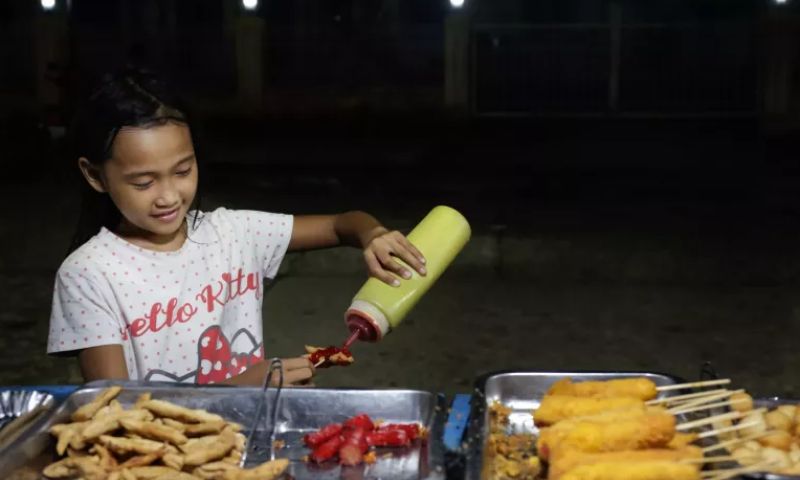MANILA: At least 2 million children in the Philippines are suffering from severe food poverty, being unable to get enough healthy food, according to a new UNICEF report published on Thursday.
The global report “Child Food Poverty: Nutrition Deprivation in Early Childhood” said that nearly 181 million children worldwide under 5 years of age, or one in four, are experiencing severe child food poverty, making them up to 50% more likely to experience wasting, a life-threatening form of malnutrition, according to Xinhua.
In the Philippines, the report said that around 18%, or 2 million, of children are severely food-poor. Four out of five children in this situation are fed only breastmilk and a starchy staple, such as rice, corn, or wheat. Less than 10% of these children are fed fruits and vegetables. And less than 5% are fed nutrient-dense foods such as eggs, fish, poultry, or meat.
The report also revealed that the Philippines is still one of the nations that account for 65% of the total number of children living in severe child food poverty.
The report added that consumption of unhealthy products was exceptionally high in the country, where more than one in five children consumed unhealthy food and sweet beverages, despite these minors consuming two or fewer food groups per day.
According to the report, nearly half, or 46%, of all cases of severe child food poverty, are among poor households where income poverty is likely to be a significant driver. In comparison, 54%, or 97 million children live in relatively wealthier households, among whom poor food environments and feeding practices are the main drivers of food poverty in early childhood.
Factors Behind Food Poverty in Philippines
The factors fueling this crisis include food systems that fail to provide minors with nutritious, safe, and accessible options, families’ inability to afford healthy foods, and parent’s failure to adopt and sustain positive child-feeding practices.
The Philippines is still one of the countries that account for 65% of the total number of children living in severe child food poverty, making them more likely to experience wasting, a life-threatening form of malnutrition.https://t.co/vPl4PojtwE
— UNICEF Philippines (@unicefphils) June 6, 2024























